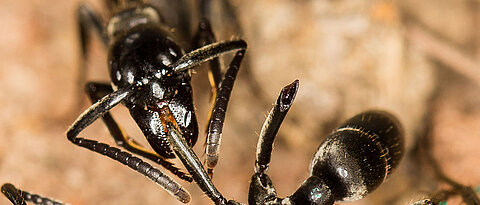
The African Matabele ants are often injured in fights with termites. Their conspecifics recognise when the wounds become infected and initiate antibiotic treatment.
more
The African Matabele ants are often injured in fights with termites. Their conspecifics recognise when the wounds become infected and initiate antibiotic treatment.
more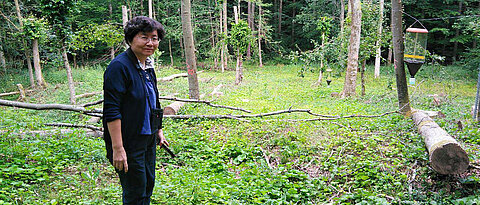
A DFG research group led by the University of Würzburg has developed a method that makes it possible to analyse the relationship between biodiversity within and between ecosystems and the multifunctionality of entire landscapes.
more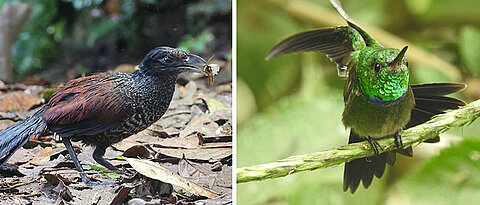
Animal sounds are a very good indicator of biodiversity in tropical reforestation areas. Researchers led by Würzburg Professor Jörg Müller demonstrate this by using sound recordings and AI models.
more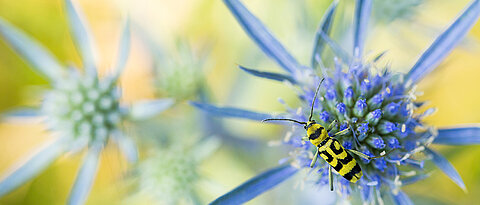
Combinations of unfavourable weather conditions over several years can cause a decline in insect biomass. This is shown by a study published in "Nature" by a team led by Professor Jörg Müller.
more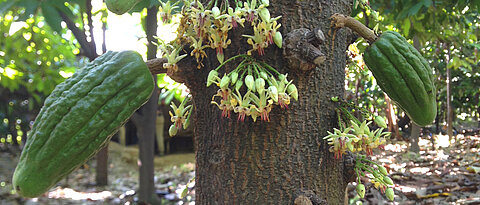
How can the cultivation of cacao be improved by using the right pollination technique? This has now been investigated by a research team including Ingolf Steffan-Dewenter's Department of Animal Ecology and Tropical Biology.
more
The Biocenter of the University of Würzburg awards the Marcella Boveri Prize 2023 to ecologist Sarah Redlich, a researcher in Professor Ingolf Steffan-Dewenter's Chair of Zoology III.
more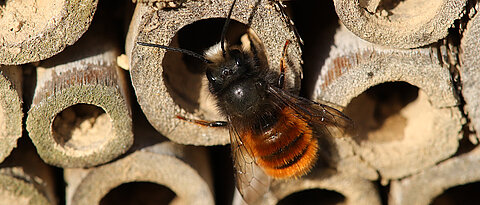
How do solitary bees and wasps recognize their homes? Biologists Dr. Sylvie Vandenabeele and Professor Thomas Schmitt investigated this question. They were able to demonstrate the importance of olfactory markers.
more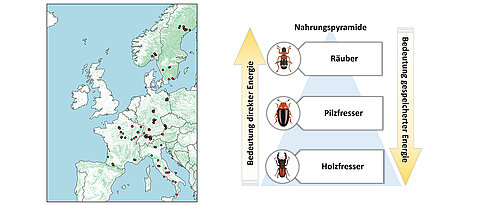
Which energy type promotes the biodiversity of beetles living in dead wood in the forest? That depends entirely on where the beetles are in the food chain.
more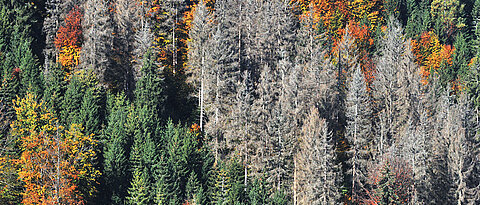
Increasing heat and drought are changing forests faster than expected. Researchers at the University of Würzburg want to keep a better eye on these dynamics. They have raised 1.2 million euros for their project.
more![[Translate to Englisch:] A honeybee (Apis mellifera) collects honeydew on a fir tree.](/fileadmin/_processed_/b/2/csm_wiebienenfreundlichistderwald_8c2bdbb968.jpg)
What role do forests play as a feeding habitat for honeybees? A team led by Würzburg biologist Dr. Benjamin Rutschmann investigated this question. For this purpose, the researchers used observation hives inside the Steigerwald.
more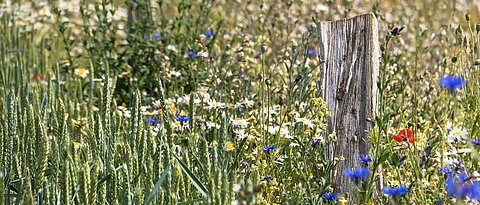
Can flower strips combined with hedges improve biodiversity in intensively used agricultural areas? This is what a team from the University of Würzburg is investigating with project partners from four EU countries.
more![[Translate to Englisch:] Der Riefenschnabelani ist häufig in den Kakaowäldern Nordperus anzutreffen. Zusammen mit Fledermäusen steigert er den Ertrag deutlich. (Bild: Justine Vansynghel / Universität Würzburg)](/fileadmin/_processed_/4/1/csm_csm_0914kakao-1-www_7f65b5ec83_7e1f23e9da.jpg)
In the cultivation of organic cocoa, many factors determine the yield. An international research team has now identified important players and their effects.
more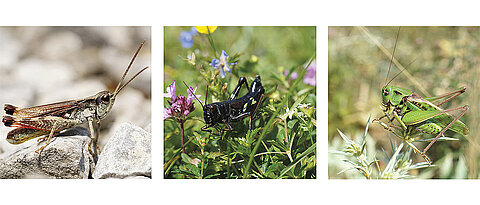
Little is known about the food webs of herbivorous insects. A team from the Würzburg Biocenter is investigating, in Lower Franconia as well as in the Berchtesgaden Alps.
more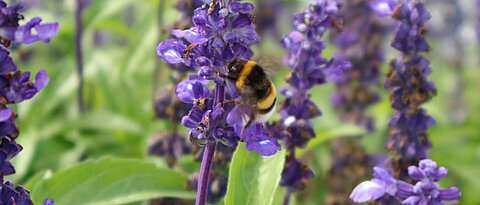
Insect diversity is declining in Bavaria. Land use is a major driver, but the impact of climate change is still unknown. A study by the University of Würzburg has now investigated how both factors interact.
more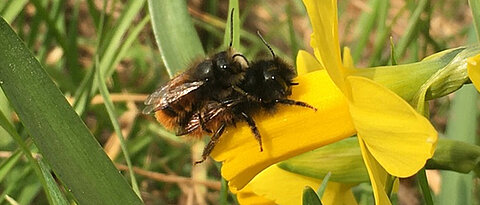
Do pesticides have anything to do with the decline in bee populations? A research team led by the University of Würzburg has investigated - and found a connection between fenbuconazole and the insects' mating behavior.
more